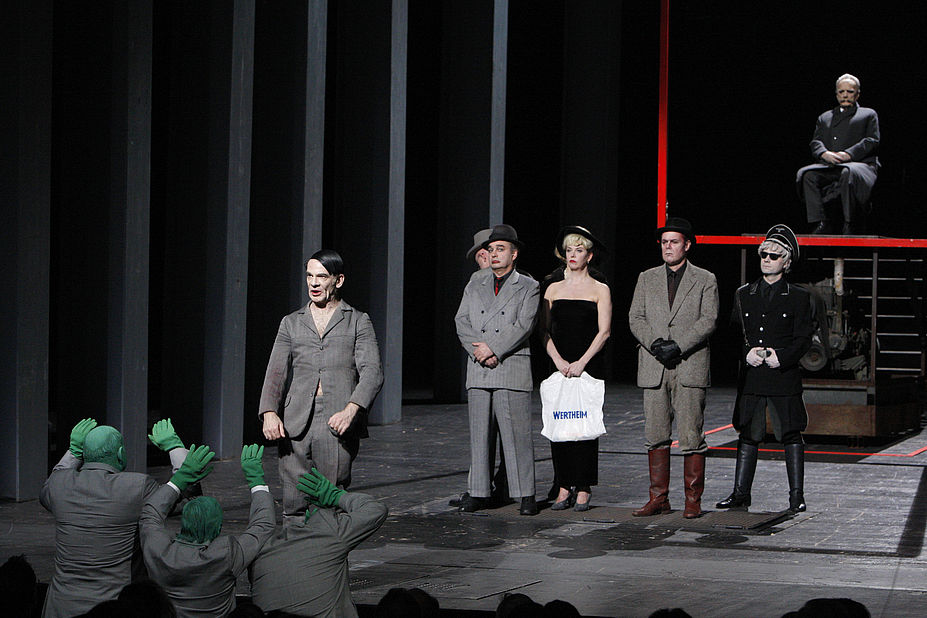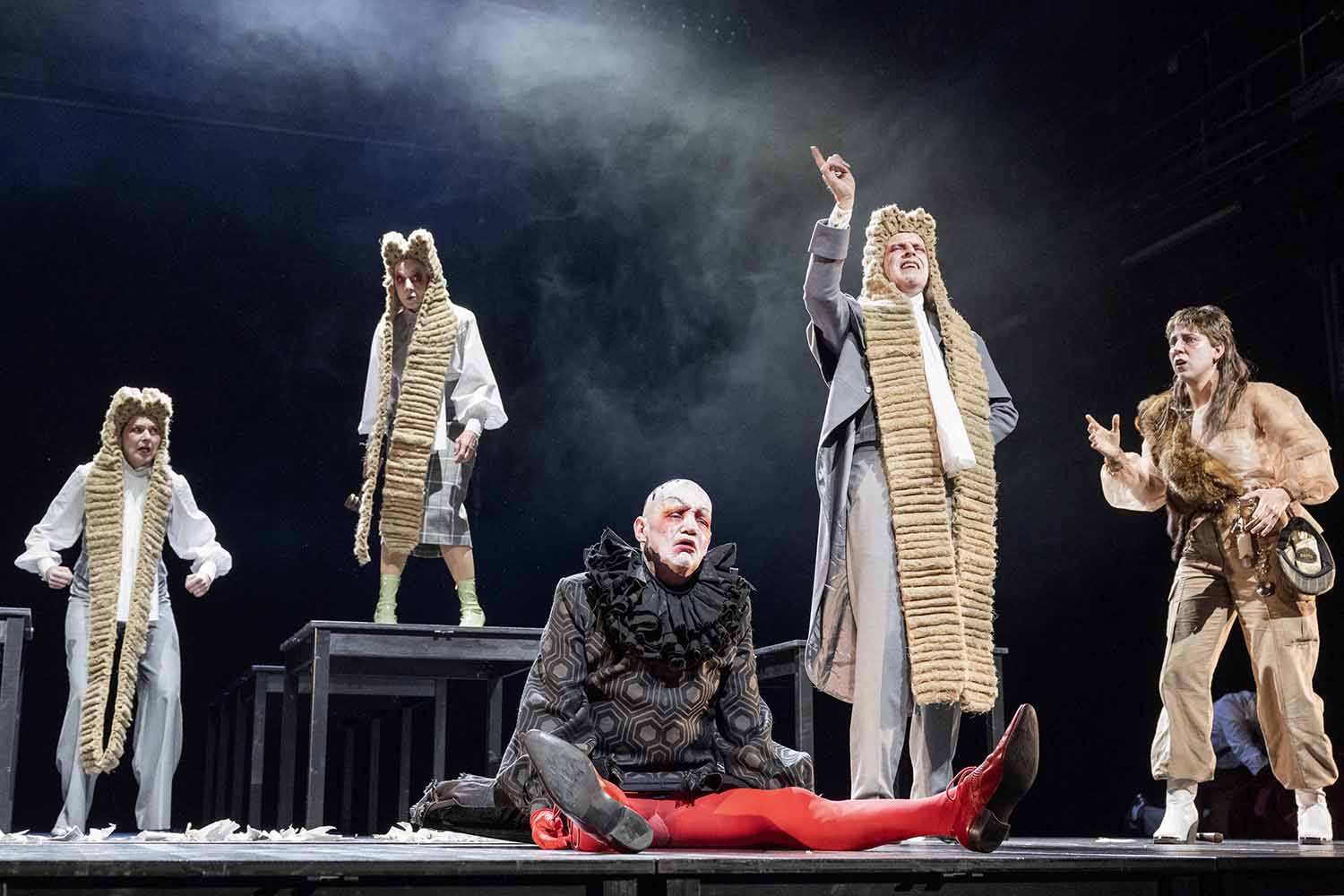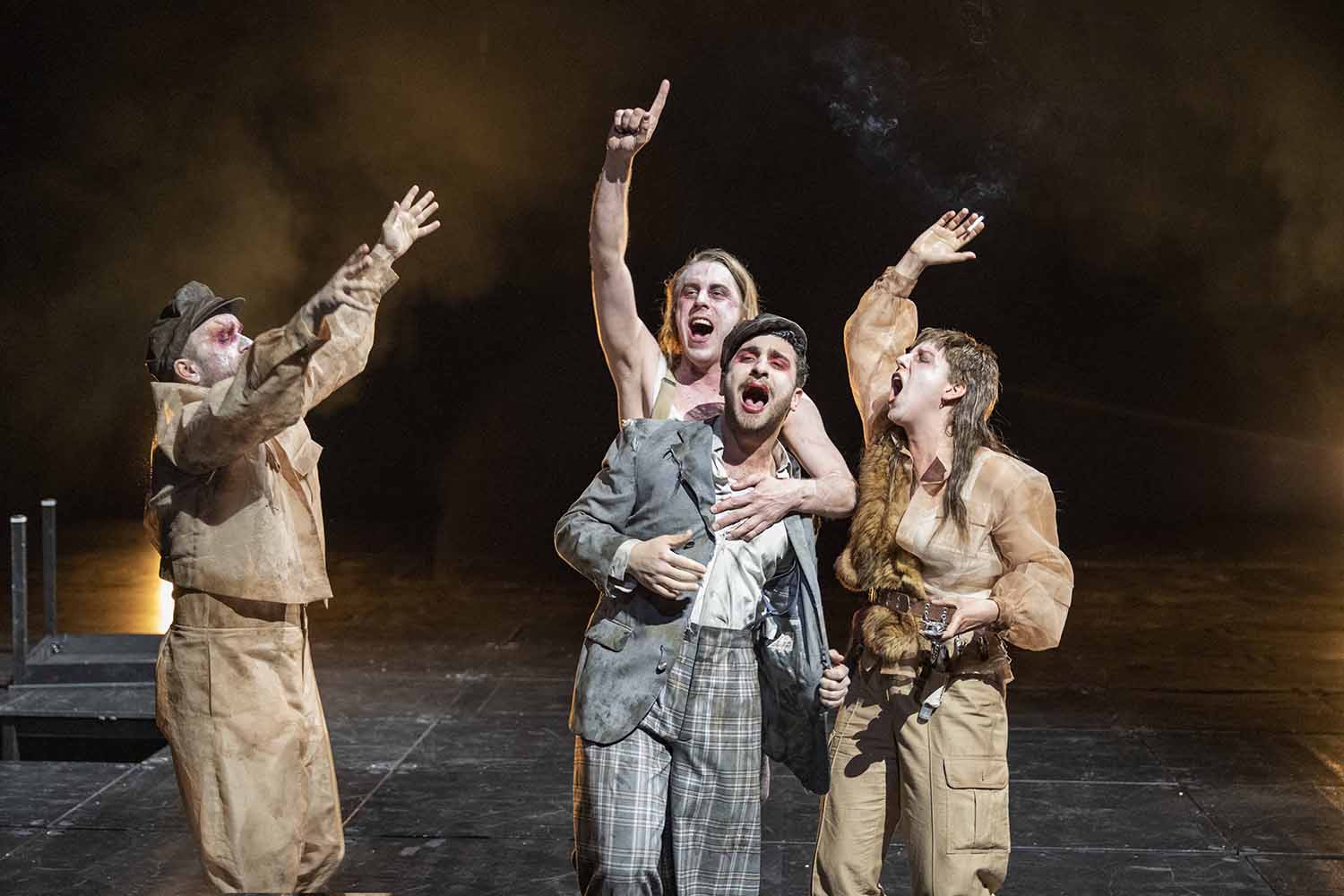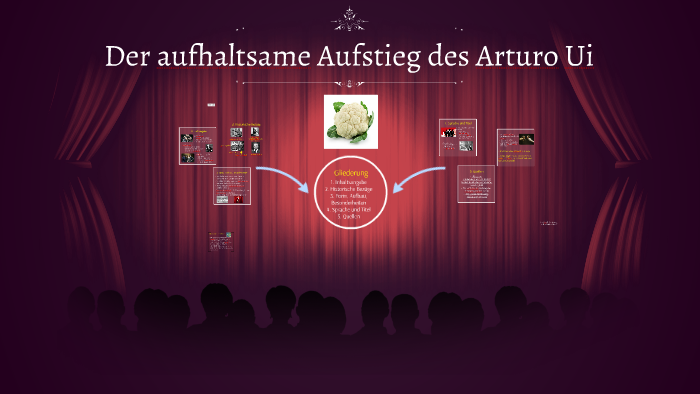Der Aufhaltsame Aufstieg Des Arturo Ui Szenenanalyse

Okay, let's be real. I once tried to explain Bertolt Brecht's Der Aufhaltsame Aufstieg des Arturo Ui to my grandma. It involved gangsters, cauliflower trusts, and Hitler. Her response? A bewildered "Was zum Teufel?". And you know what? I kinda understood her confusion. This play isn't exactly light bedtime reading.
But! (Big but!) It's also brilliant. Utterly, brilliantly brilliant. It's a sharp, witty, and deeply disturbing allegory of Hitler's rise to power, disguised as a Chicago gangster story. Think Scarface meets political satire, with a dash of Brechtian alienation thrown in for good measure. Anyone ever tried to picture that crossover? I'm having a hard time right now!
So, let's dive into some scene analysis, shall we? I mean, if we're going to tackle this behemoth, we need a roadmap. Think of me as your slightly sarcastic, overly enthusiastic tour guide.
Scene 1: The Seeds of Chaos
Right from the get-go, Brecht sets the stage for Ui's ascent. The scene usually depicts the precarious situation in the cauliflower business (yes, cauliflower!). The farmers are struggling, ripe for exploitation, and the established order is weak. This sets the tone – think the Weimar Republic in Germany. Weak, vulnerable, and desperately seeking a solution to its problems. You know, those times people were willing to listen to literally anyone who had a grand scheme?
Key takeaway: In moments of vulnerability, desperate populations are easily swayed by strong, charismatic figures. Even if those figures are, you know, cauliflower-obsessed gangsters.
Scene: The Persuasion of Dogsborough
Ah, Dogsborough. The grand old man, the symbol of the established order. This guy represents Hindenburg. In the scene, Ui manipulates Dogsborough into legitimizing his criminal enterprise. It's a pivotal moment. Ui gains credibility by associating himself with the old guard, making him appear more legitimate than he actually is. This is a textbook example of using existing power structures to gain power.
Isn't it ironic how the supposed guardians of society can inadvertently pave the way for its downfall? It’s tragic, but it shows that structures can be corrupted, even by those within!
Scene: The Training of Ui
This is where things get really interesting. Ui, initially a bumbling, awkward gangster, undergoes intensive training to improve his public speaking and charisma. He hires an actor to teach him how to walk, talk, and gesticulate like a leader. This scene is pure satirical gold. Brecht exposes the theatricality of power. Leadership, in this context, isn't necessarily about competence or integrity. It's about performance.
Food for thought: How much of what we see in modern-day politics is genuine, and how much is carefully crafted performance? Makes you think, right?
Scene: The Night of the Long Knives (Brecht-style)
Ok, so Brecht doesn't call it that. But the scene where Ui eliminates his rivals is a clear reference to the brutal purge of political opponents during the Nazi regime. It's a stark reminder of the violence and ruthlessness that underpin Ui's rise. Brecht doesn't shy away from the ugliness. But it is more implied than explicitly stated, to let the audience draw the connection.
Important note: Brecht's use of allegory is crucial here. By distancing the events from their historical context, he forces the audience to confront the universal themes of power, corruption, and the dangers of unchecked ambition. It's not just about Hitler; it's about any demagogue who rises to power through manipulation and violence.
Final Thoughts: So what?
Der Aufhaltsame Aufstieg des Arturo Ui isn't just a historical play. It's a warning. It's a reminder that we need to be vigilant against the seductive power of demagoguery and the dangers of complacency. It prompts us to question the narratives we're presented with and to critically examine the leaders we choose. Especially today, when the play appears so relevant.
So, next time you hear someone talking about cauliflower trusts and Chicago gangsters, don't dismiss them as crazy. They might just be trying to explain one of the most important plays of the 20th century. And who knows? You might even learn something along the way. I sure hope you did here!




